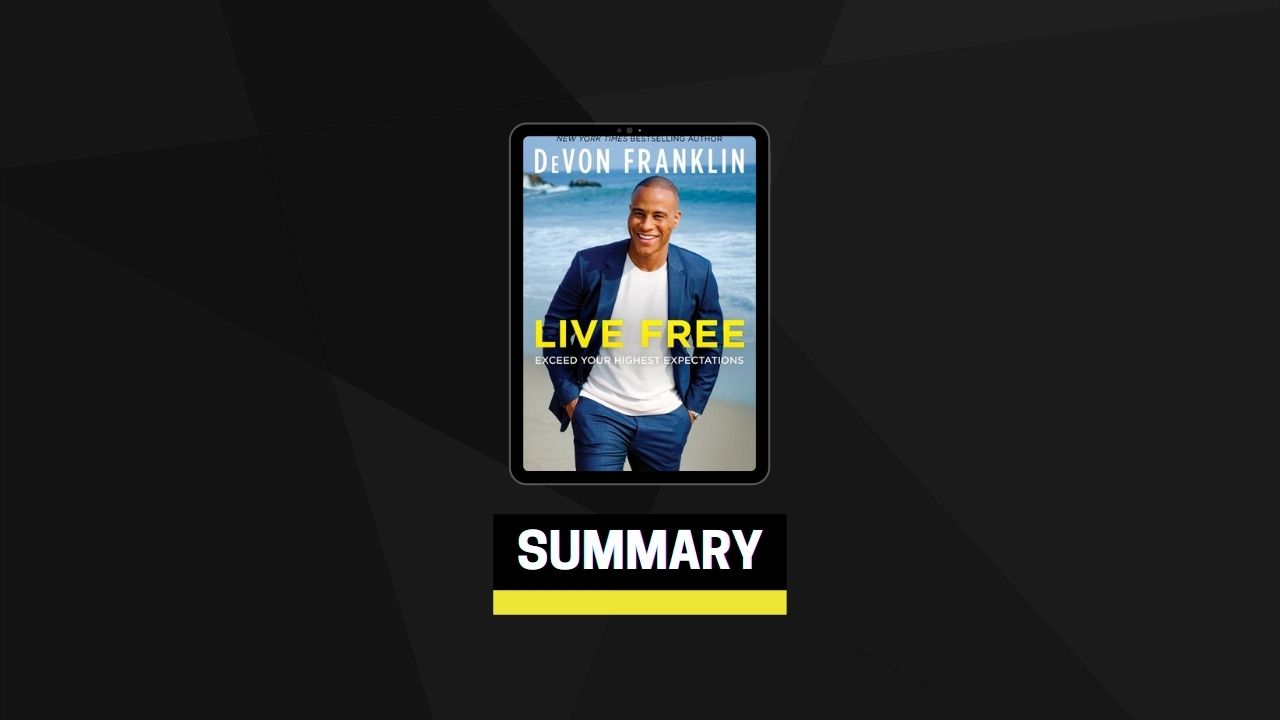Are You Living Free?
Unmanaged expectations lead to an unhappy life. This is the true secret that no one is talking about. One of the reasons why we have so much difficulty isn’t life itself—it’s what we have expected from life up until now, and how upset we have been when our expectations did not come to pass.
Our focus goes to where it shouldn’t be—on other people and situations outside of ourselves. That distracts us from taking full accountability for our own choices and contentment. Instead of maximizing the time that does exist (the present), we outsource our happiness, satisfaction, and peace to a time that doesn’t yet exist (the future): Oh, when I get this job, or, When this promotion happens, or, When I get married . . . then I’ll be happy. News flash: if you’re not happy now, you won’t be happy then.
Set Yourself Free
There are four main areas in your life where expectations come into play:
- PERSONAL: Your expectations of yourself
- CULTURAL: Your expectations of your culture and the culture’s expectations of you
- RELATIONAL: Your expectations of others and others’ expectations of you
- PROFESSIONAL: Your expectations of your career and your job’s expectations of you
To live more freely, you’ll have to gain control in all of these areas. To do so, you must evaluate each and every one of your expectations and determine where it came from. If it doesn’t serve you, you must let it go. By doing so, you will release yourself from its grip. Do this again, and again, and again, until you’re left with only the expectations of your choosing. Then, any expectations you do keep must be set carefully; make sure these expectations are realistic and communicate them to anyone else who might need to agree to meet them. Then and only then will your expectations be set properly.
This, right here, is the secret to a happier life! And it works.
The Information Prescription
A simple but profound way to cultivate hope is to seek out information on any topic that is causing you anxiety. Having more information will either help you have a more optimistic outlook or give you a needed reality check.
For example, I’m worried I won’t be able to pay off my student loans. Now figure out what is the unknown fueling your anxiety. I don’t know how I can ever pay them off, given where I am in life right now. The unknown is: How will I do it? To move into a mindset of confidence and hope, overload yourself with productive information on practical steps others have taken to manage their student debt. Discover what you need to do to move yourself further along.
Being more informed will give you greater confidence to keep going, even in the face of your greatest challenges. You will feel more in control of the situation, and that feeling will help you have a more optimistic outlook and feel more hopeful.
Dare to Hope
Another way to build more hope is to share the optimism you already possess (even if you don’t have as much as you’d ideally want). In his moving, unflinching essay “The Machine Stops,” the neurologist and writer Oliver Sacks wrote profoundly about the future, even knowing he was facing a terminal cancer diagnosis. After expressing his concerns about the many ways in which he had seen technology cause people to disconnect from the real world and from each other, he ends the essay, which was published in The New Yorker, on a remarkable note: “Nonetheless, I dare to hope that, despite everything, human life and its richness of cultures will survive, even on a ravaged earth. . . . As I face my own impending departure from the world, I have to believe in this—that mankind and our planet will survive, that life will continue, and that this will not be our final hour.”
There’s something so profound here about the inherent grace of letting go of his own expectations and replacing them with one belief for the world that will remain after he is gone. This is the power, against all odds, of daring to hope and sharing that hope. This is the power of what’s possible when everything else is stripped away.
Expectationships
Just like any other relationship, when two people enter into a friendship, they both have expectations about it—how much time they’ll spend together, how intimate they’ll be in their conversations, how likely they are to show up for each other when needed.
Sure, you can have expectancy—you can hope your friend will give back as much as you have put in. You can think it would be great if they did. And yes, a sign of a strong friendship is when there’s reciprocity, when it’s a two-way street. But it might be that your friend has obligations—a family, a more demanding job, an elderly parent—that prevent them from giving as much to you as you’ve given to them. If this is the case, it’s up to you to decide if this friendship is worth maintaining or not.
You may decide that, for the time being, it’s okay if either you or your friend gives less. And it becomes a deeper friendship, because you don’t feel taken advantage of. Or you may decide to find another friend whose life circumstances are more similar to yours, so you’re more likely to have the same space in your lives for friendship.
But whatever you do, don’t ever try to control someone else’s behavior and not allow that person to be exactly who they are. It won’t work, and it’s not healthy for either person in the friendship.
Explain Instead of Expect
Change is possible, and relationships can and do improve and grow stronger, especially when both sides agree to work together toward setting shared expectations and releasing those expectations that can’t be honored. Here’s an example. Barack and Michelle Obama have had ups and downs in their relationship, just like everyone else. Early in their marriage, some of their problems were around unset expectations. Those led to different assumptions about how their union should function and what they both needed to be happy.
They clearly had different expectations about how much time they were both going to devote to the marriage and to being home with their young family. Obviously, Michelle did not demand that her husband give up his political ambitions. As she acknowledges in the interview, a career in politics doesn’t offer much wiggle room—it’s a 100 percent obligation, all of the time, especially to do it with as much passion and success as President Obama has done.
What she chose to do, out of love for her husband and commitment to her marriage, was to communicate all of this to him rather than letting the resentments pile up. They went to counseling together. During these sessions, she explored what happiness meant to her, and how to create more of it for herself within the parameters of her marriage. Also, Barack gave her some information that helped her understand his perspective and adjust her expectations and set them in a way that was more realistic—and therefore healthier—for both of them: “So, I had to share my vulnerability and also learn to love differently. It was an important part of my journey of becoming. Understanding how to become us.”
Expect the Unexpected
You can set your expectations properly and think you’ve gotten your life all lined up exactly where you want it to be—or at least headed in the right direction, with a good process in place for moving it forward. But life doesn’t come with any guarantees that you still won’t have moments of frustration or anger. No matter how realistic your expectations are, and how clearly you have communicated them, you will still face setbacks. You will still need to develop, cultivate, and maintain a certain amount of personal resilience in the face of the surprises that life has in store for you, some of them quite unpleasant.
For most of us, 2020 is a perfect example of this phenomenon. Things are going to happen to you in life that you can’t plan for. And being prepared for that can make you less fearful and more hopeful.
When we go through tough times, we have to remember that we are who we are, not what we do.
Going through this challenging process is essential for the caterpillar to reach its full potential. When the time is right, that caterpillar will emerge, transformed as a butterfly. Just like the caterpillar in the cocoon, every challenge you face is a new opportunity for your own radical and positive personal transformation.


